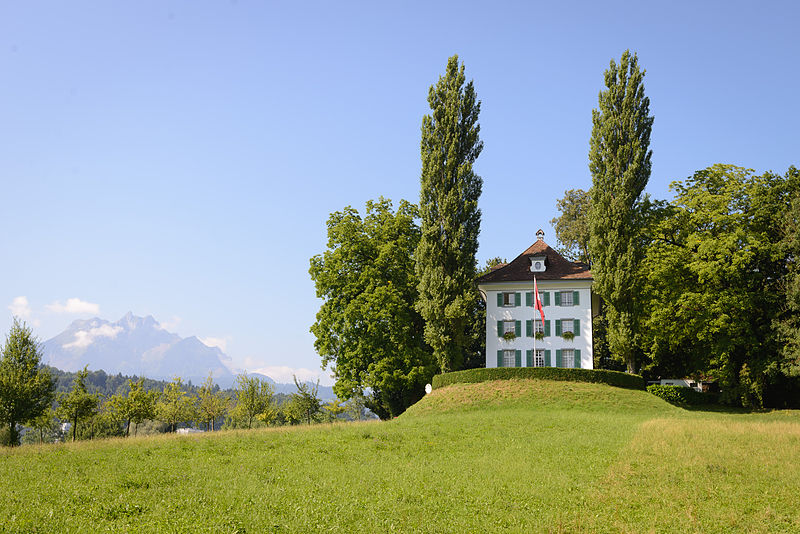Nestled in the picturesque Bavarian town of Bayreuth, the Richard Wagner Museum stands as a testament to the life and work of one of the most influential and controversial composers in history. As visitors approach the museum, they’re greeted by the imposing Villa Wahnfried, Wagner’s former residence and the centerpiece of the museum complex. The villa’s grand facade sets the stage for an immersive journey into the world of Wagner, his music, and the complex legacy he left behind.
Upon entering the museum, guests are immediately struck by the sheer breadth of artifacts and exhibits on display. From original manuscripts and personal letters to costumes and set designs from his operas, the collection offers a comprehensive look at Wagner’s creative process and the impact of his work on the world of music and beyond. One of the most captivating aspects of the museum is how it doesn’t shy away from addressing the more controversial elements of Wagner’s life and legacy.
As visitors move through the exhibits, they’re confronted with Wagner’s well-documented antisemitism and the subsequent appropriation of his music by the Nazi regime. The museum takes a balanced approach to this sensitive topic, presenting historical context and encouraging visitors to engage in critical thinking about the relationship between art and ideology. This unflinching examination of Wagner’s darker side adds depth to the overall experience and sets the Richard Wagner Museum apart from more sanitized cultural institutions.
Moving on from the more contentious aspects of Wagner’s life, the museum delves into the composer’s groundbreaking musical innovations. Interactive displays allow visitors to explore the leitmotifs and complex harmonies that characterize Wagner’s operas, making his revolutionary approach to composition accessible to music enthusiasts and novices alike. The museum’s use of technology to bring Wagner’s music to life is particularly impressive, with immersive audio installations that transport visitors to the heart of his most famous works.
One of the highlights of the museum is the recreation of Wagner’s study, where he composed some of his most celebrated operas. The attention to detail in this exhibit is remarkable, with every item carefully placed to give visitors a sense of what it might have been like to step into the composer’s creative space. It’s easy to imagine Wagner himself sitting at his desk, quill in hand, as he penned the notes that would change the course of musical history.
As visitors make their way through the museum, they’re treated to a fascinating look at the Bayreuth Festival, the annual celebration of Wagner’s music that continues to draw opera lovers from around the world. The exhibit traces the festival’s history from its inception in 1876 to the present day, showcasing how it has evolved while remaining true to Wagner’s original vision. This section of the museum serves as a bridge between Wagner’s time and our own, demonstrating the enduring impact of his work on contemporary culture.
The Richard Wagner Museum doesn’t just focus on the past, however. It also explores how Wagner’s influence continues to shape modern music and art. From rock musicians citing Wagner as an inspiration to contemporary opera productions that reinterpret his works for new audiences, the museum illustrates the composer’s ongoing relevance in the 21st century.
As visitors conclude their tour, they’re left with a nuanced and multifaceted understanding of Richard Wagner and his legacy. The museum’s thoughtful curation and willingness to engage with difficult subjects make it a must-visit destination for anyone interested in music, history, or the complex interplay between art and society. Whether you’re a die-hard Wagnerian or simply curious about one of music’s most polarizing figures, the Richard Wagner Museum offers a rich and rewarding experience that will leave you with plenty to ponder long after you’ve left Bayreuth behind.
The Richard Wagner Museum, located in Bayreuth, Germany, serves as a significant cultural institution dedicated to preserving and showcasing the life and works of the renowned composer Richard Wagner. Housed in Villa Wahnfried, Wagner’s former residence, the museum offers visitors a comprehensive insight into the composer’s personal life, artistic process, and lasting impact on music and culture. Through its extensive collection of manuscripts, personal belongings, and interactive exhibits, the museum successfully bridges the gap between Wagner’s 19th-century world and contemporary audiences. As a center for Wagner scholarship and a pilgrimage site for music enthusiasts, the Richard Wagner Museum continues to play a crucial role in maintaining the composer’s legacy and fostering a deeper understanding of his contributions to the world of opera and classical music.

